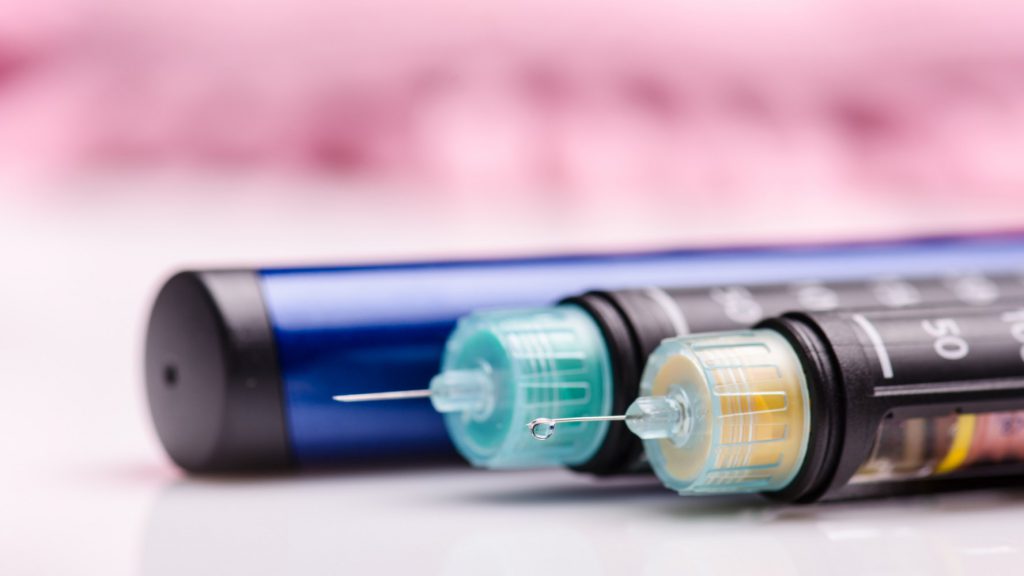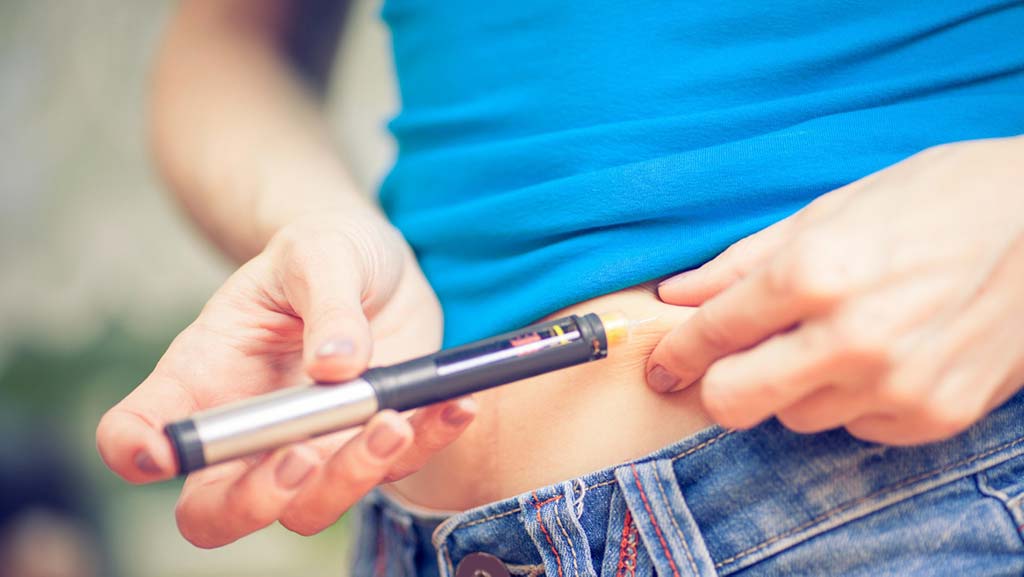What People With Diabetes Need to Know About Insulin

How does diabetes affect how your insulin works?
Insulin is a hormone produced in the pancreas that regulates how much glucose is in your blood. It helps control blood glucose (sugar) levels by telling your liver, muscle, and fat cells to take in glucose from your blood, helping the glucose to be used in the body for energy. A lack of insulin or resistance to insulin can cause diabetes.
Insulin resistance is when cells in your muscles, fat, and liver don’t respond well to insulin and can’t easily take up glucose from your blood meaning your sugar levels rise. As a result of this, your pancreas produces more insulin. Overtime insulin-producing cells can become damaged or destroyed and stop producing insulin. This results in insulin deficiency whereby it leaves too much sugar in the blood and not enough in the cells for energy. When there is too much sugar in the blood, this can be known as hyperglycaemia.
Type 1 diabetes
Type 1 diabetes is a medical condition where your blood glucose level is too high because your pancreas cannot produce any insulin. Type 1 diabetes occurs when your immune system, the body’s system for fighting infection, attacks and destroys the insulin-producing cells of the pancreas.
People with Type 1 diabetes rely on insulin treatments to control their blood glucose levels, and they can take it through either a pump or an injection. People with Type 1 diabetes are usually diagnosed earlier in life and it is not known to be linked to age, weight or lifestyle factors.
Type 2 diabetes
Type 2 diabetes is a condition where the insulin your body makes does not work properly, or it cannot make enough. Many people with Type 2 diabetes are able to carry on without medications, but may need to make a few lifestyle changes such as:
- Increasing exercise
- Losing weight
- Changing their eating habits
However, if lifestyle changes do not have a great enough impact, then people with Type 2 diabetes may progress on to oral medications and/or injectables which can be taken through injections or pumps.
Types of insulin
There are 3 common types of insulin someone could be prescribed which are listed below:
- Rapid-acting/short-acting is usually taken before your regular meals to protect your glucose levels from rising while eating.
- Intermediate-acting is also known as background or basal insulin. This means it works throughout the day. It is often combined with rapid-acting or short-acting insulin.
- Long-acting is slower than intermediate insulin, but very similar in how your body processes it. It is often combined with rapid-acting or short-acting insulin.
The type you are prescribed will depend on your body’s needs.
Insulin administration and injection sites

You will be advised the best times to take your insulin by your healthcare professional. It’s important to adhere to these instructions to control your blood glucose levels.
Insulin doesn’t come in pill form because your digestive system would break it down before it had a chance to start working. Many people with diabetes will self-administer by injecting with a pre-filled pen. If you inject regularly you will need to vary the areas of your skin where you inject to ensure it is being absorbed consistently.
The ideal areas to inject are the parts of your body with a larger layer of fat, such as:
- Abdomen
- Thighs
- Buttocks
If you inject in the same place too often, your skin may start to become stiffer, this can often lead to it becoming lumpy. It can help to imagine a grid drawn onto your body so you can pick a different square to inject into each time. After some time, you’d need to start again at the first square you chose, but that should have fully healed by the time you’ve gone back to that area.
Some areas of your body will absorb insulin quicker than others so it’s important to keep track of this. Speak to your healthcare professional if you have any concerns about your injection sites and they will be able to advise you.
Storage advice
It’s important to store your insulin properly to make sure it is effective:
- Insulin should be stored in the fridge and away from heat. If you go out it will be useable at room temperature for short periods of time, but if you’re travelling it’s best to keep it in a cool bag.
- Keep it out of sunlight.
- Check the expiry date and don’t use it if it’s out of date.
How can Spirit Pharmacy help you?
Spirit Pharmacy specialises in helping people with diabetes. We can dispense your insulin prescriptions (along with your other medicines) and deliver it free of charge directly to your house in insulated environmentally friendly packaging to keep it cool. We also offer free diabetes education to all our customers and our pharmacists can help with any queries you may have.
Find out more about Spirit Pharmacy.


